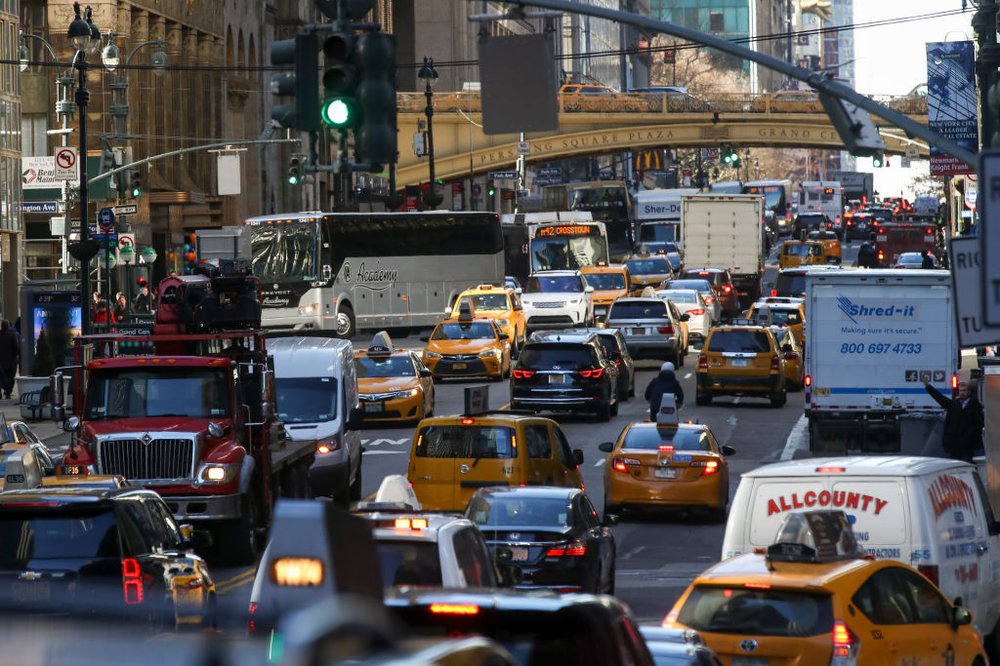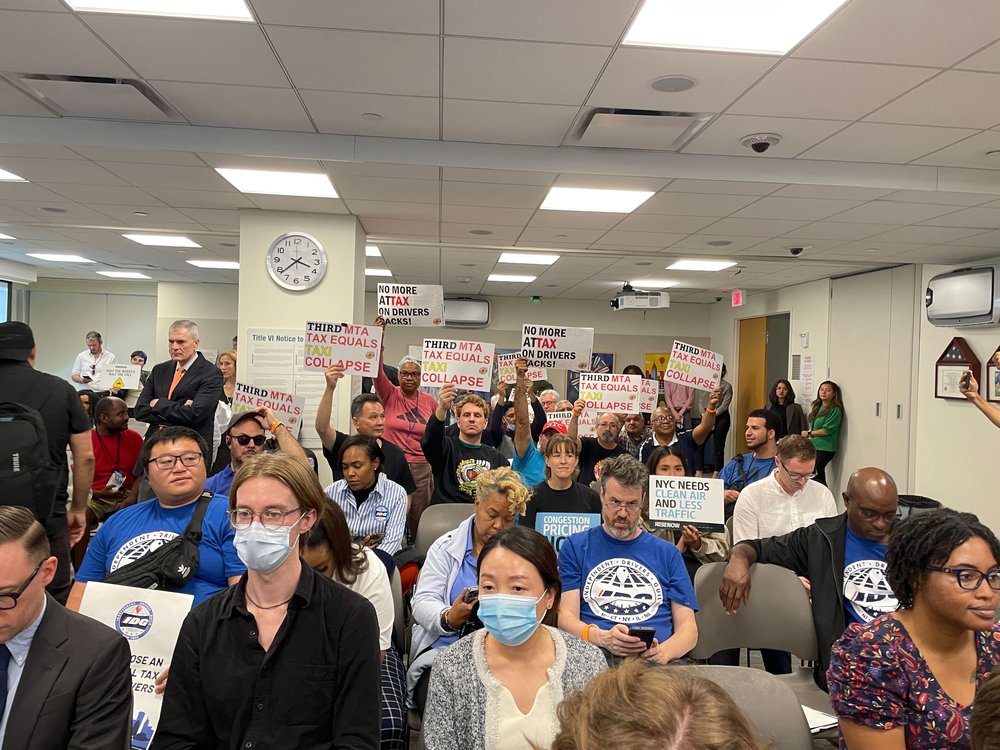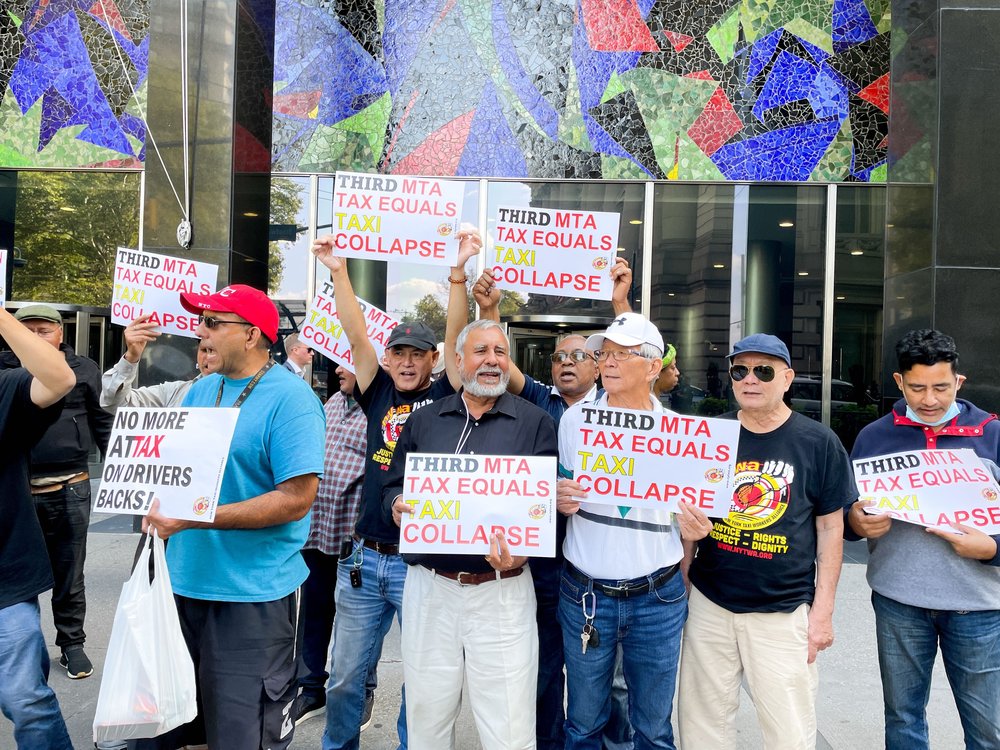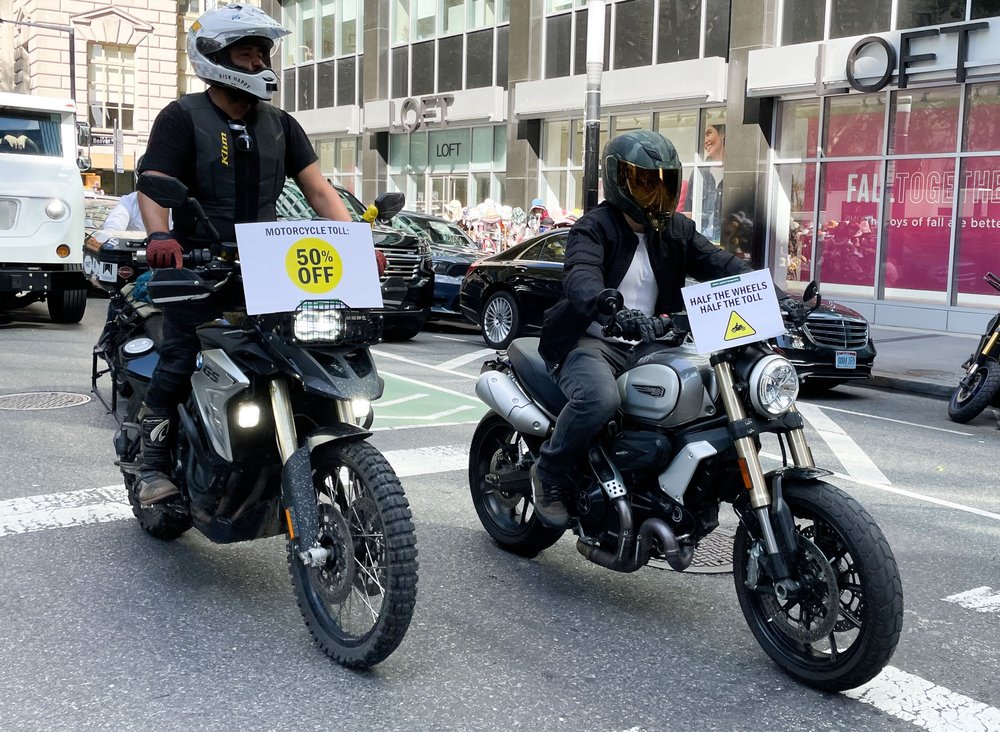Panel weighs MTA's congestion pricing tolls and carve-outs
Oct. 2, 2023, 4:28 p.m.
Commuter buses and certain government vehicles should be exempt from the tolls, according to a transportation panel.

Drivers still don’t know how much they’ll pay to enter Manhattan as part of the MTA’s congestion pricing program.
However, the list of new exemptions has grown. Commuter buses and certain government vehicles are now among the groups that should be exempt from congestion pricing tolls, a transportation panel announced Monday.
At a public meeting, the group charged with selecting the charges and exemptions from the landmark congestion pricing met for what is likely the final time and discussed four new tolling scenarios that combine MTA and federal recommendations. But didn’t answer the big question: How much will drivers pay?
The program is expected to go into effect in the spring and will charge vehicles who enter Manhattan below 60th Street.
Julietta Michaelson, special advisor to the Traffic Mobility Review Board, presented the board with four new tolling options, including one that would charge trucks “for the congestion they cause,” by tolling box trucks at twice the toll rate and large articulated trucks three times the rate.
Three of the new options offered a 50% night time discount for vehicles. Two of the options also include a 25% discount during the hours of 8 p.m. to 10 a.m. and 5 a.m. to 6 a.m.
Michaelson’s recommendations took options from the MTA’s own environmental assessment, federal recommendations and the TMRB’s previous concerns from its other two meetings.
Her recommendations also included exempting commuter buses and specialized government vehicles.

The options also provided a moderate discount for drivers that pay a tunnel or bridge fee before entering the zone. The crossing credits ranged from $4 to $7, far below the full credit that lawmakers from New Jersey had hoped for.
Not full parity for crossing, but “moving in that direction,” Michaelson said.
She recommended taxis and for-hire vehicles pass the tolls on to customers and to charge them per ride, since, “half the vehicles in the CBD [central business district] are taxis.”
The new options for tolling taxis, green cabs and black cars $1 to $1.50, and app based taxis $1.50 to $2.
While it’s still unclear what the fee structure for congestion pricing will be, the list of exemptions means New York is one step closer to implementing the program after years of back-and-forth debate.
All told, 122 different groups requested exemptions from the tolls.
The six members of the Traffic Mobility Review Board have already had two previous public meetings to discuss the program, exemptions and how much to charge drivers.
No matter what the fee structure it devises, the MTA is required by law to raise $1B from congestion pricing, all of which must go toward the MTA’s capital improvements. The agency plans to sell bonds to generate $15B from the revenue.
Before the meeting, dozens of people gathered outside of MTA headquarters in Lower Manhattan to protest the upcoming charges. There was a group of motorcycle riders revving engines, along with a group of taxi drivers waving placards and chanting, ”No more tax on driver’s back.”

Dorothy Lecont, 66, from Flatbush, Brooklyn, has been driving a yellow taxi for 36 years. She said she's worried an additional congestion toll on top of other expenses will lead to the death of the yellow cab as a whole.
“It’s really affecting our business, we don’t want another tax on us,” she said. “Things are very expensive: gasoline, getting a new car out on the road, repairs, and we’re not making money. So we don’t want a congestion fee on us, we want to be exempt.”
Across the pond, the iconic black cabs in London don’t pay a congestion pricing fee, while for hire vehicles like Uber have to pay the fee.
App-based taxis like Uber and Lyft have been lobbying hard for an exemption to the tolls. The Federal Highway Administration, which approved the MTA’s tolling plans, asked the MTA to only charge taxis and for-hire vehicles once a day to enter the toll zone.
Meanwhile, Cheryl Stewart, a sculptor who rides a motorcycle into the city regularly, also asked for a carve-out.

“We’re asking for a 50% discount, two wheels instead of four,” said Stewart, who is the leader of the group Riders Against Congestion. “Why shouldn't motorcycles, which are exponentially smaller [than trucks or cars] by orders of magnitude, pay less?”
The non-profit group Regional Plan Association, which has been a long time proponent of congestion pricing, supports the idea of giving toll credits to drivers that enter Manhattan and already paid a toll at a bridge or tunnel.
In a recent blog post on the RPA website, Kate Slevin and Rachel Weinberger said that the group is in favor of creating credits for current tolls in an effort to have a more “balanced” system.
“The benefits of this approach are clear: it’s a good transportation policy because it would reduce traffic congestion in neighborhoods near the free crossings,” the pair wrote.
That plan could appease Gov. Phil Murphy, whose administration is currently suing the MTA over congestion pricing.
This is a developing story and will be updated.
Major companies lobby on congestion pricing ahead of meeting on toll costs